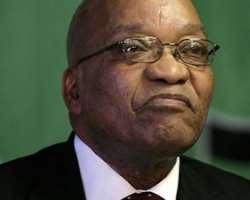South Africa grants parole to apartheid death-squad leader

Apartheid death-squad leader Eugene de Kock, dubbed ‘Prime Evil’ for his role in the torture and murder of black South African activists in the 1980s and early 1990s, has been granted parole after 20 years in prison.
“In the interest of nation-building and reconciliation I have decided to place Mr De Kock on parole,” Correctional Services Minister Michael Masutha told a news briefing on Friday, adding that the date and location of his release will be kept secret.
De Kock was sentenced to two life terms plus 212 years in prison for his activities as head of the infamous Vlakplaas police death squad targeting anti-apartheid activists.
The highly-decorated former colonel confessed to more than 100 acts of murder, torture and fraud before the Truth and Reconciliation Commission (TRC), which was established in 1995 to consider amnesty for those who confessed their crimes during the apartheid period.
He was granted amnesty for most offences – including the 1982 bombing of the ANC’s London offices – but was jailed for six murders found to have lacked direct political motivation.
Meanwhile, South African Clive Derby-Lewis – the mastermind of a 1993 apartheid killing – was denied medical parole on Friday.
The run-up to the parole decision rekindled bitter debate over the crimes of the former white-minority regime.
To some his crimes of multiple murder, kidnapping and torture were too heinous for forgiveness.
To others, the former police officer was a symbolic and repentant prisoner serving time as a scapegoat for countless perpetrators of apartheid evil who were never punished.
It’s a point De Kock made in his court appeal of last year’s parole denial.
“I am the only member of the South African Police Service that is serving a sentence for crimes which I had committed, as part of the National Party’s attempt to uphold apartheid and fight the liberation movements.”
He has by all accounts been a model prisoner, engaging with the families of his victims and cooperating with the government in locating the dumped bodies of his victims.
He has made confessions before tribunals, written letters begging forgiveness and named top officials who gave him orders.
He has been eligible for parole consideration for more than seven years, but his second bid for release was denied in July, against the recommendation of the parole board.-Aljazeera.
